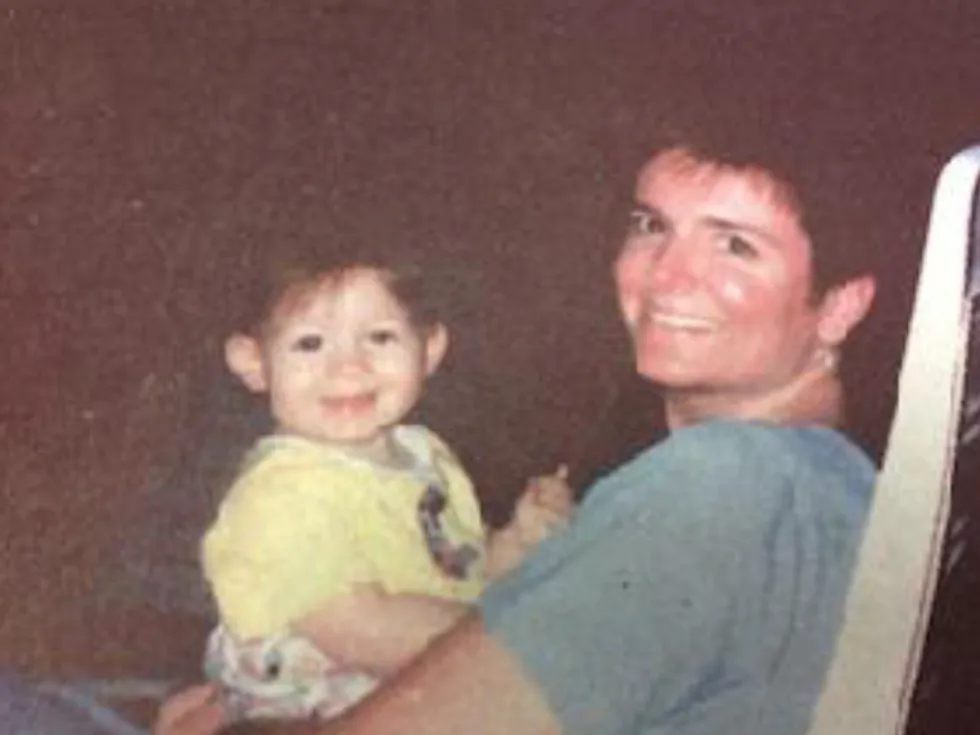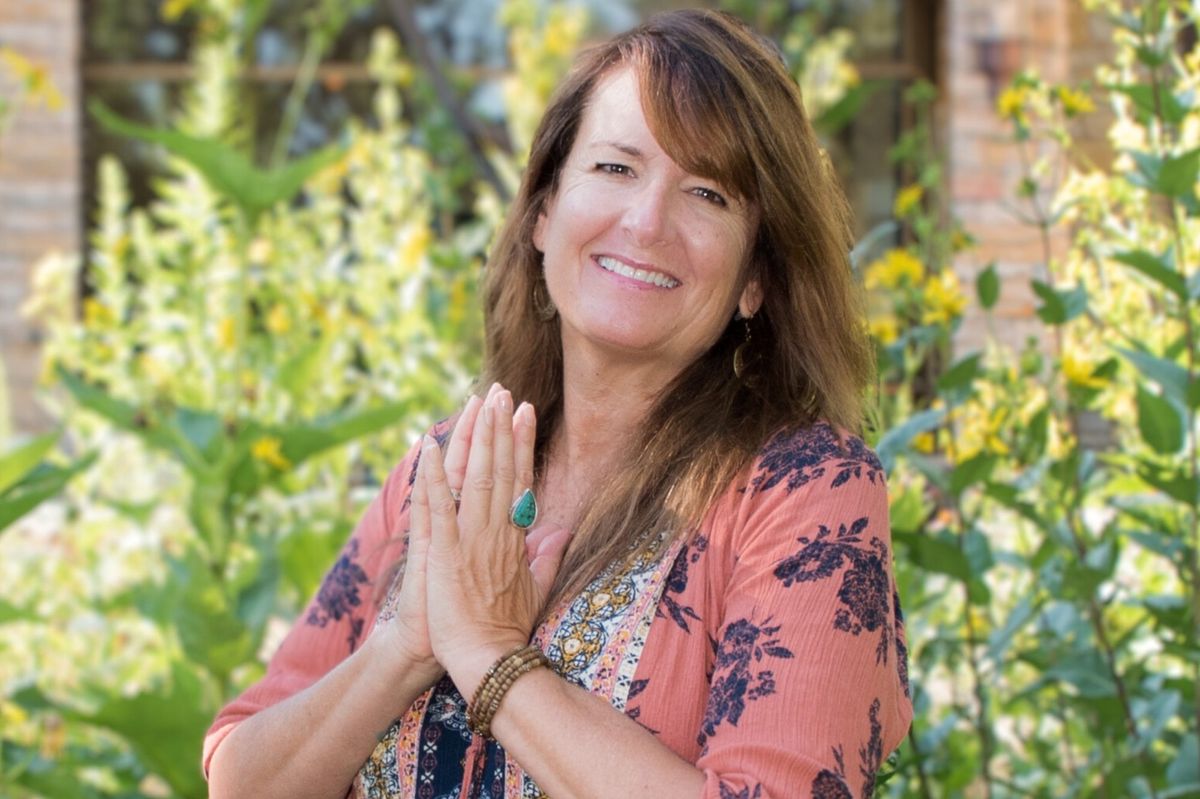As told to Nicole Audrey Spector
I started experiencing shortness of breath in my late 20s. I went to several doctors over the years who all listened to my lungs and said they were clear. Eventually, I was diagnosed with asthma.
Each healthcare provider prescribed me an inhaler and then sent me on my way. But the inhalers didn’t help much, and my shortness of breath gradually got worse. When I was 31 and pregnant with my daughter, I felt a glob in my throat and coughed it up. It was bright-red blood. I was stunned. It shook me to my core and I quickly called my doctor.
“You probably just coughed too hard,” the doctor said.
I explained that I didn’t feel the need to cough until I felt the glob of blood. But because it was a single event, she recommended we wait until after I gave birth to get an X-ray because of the radiation. I felt comfortable waiting — I had no reason to object — and it didn’t happen again.
I had a chest X-ray after my daughter was born, and it came back clear. There was, it seemed, nothing to worry about.
For many months, I was OK — except for the shortness of breath. I lived on a farm and was a pet groomer, so I decided I just had allergies.
Back when I was first diagnosed with asthma, I began seeing an acupuncturist to help with my breathing and fatigue. In the months after I coughed up the glob of blood, she recommended cupping — an alternative medicine procedure where a therapist puts special cups on your skin to create suction and draw fluid into the area. Some find it can help with a variety of health issues, including back and neck pain, migraine attacks, and immunity. It helped my fatigue a lot, and she believed it could help ease my shortness of breath.
But a couple days after the cupping therapy, I coughed up a huge amount of blood. And this time it didn’t stop.
I called my mother, who was a nurse, and she basically ordered me to go to my doctor. It was Thanksgiving weekend. I visited several emergency rooms only to be given another inhaler and sent home when the X-rays came back clear. Once my doctor could see me after the long weekend, I went in with my still-breastfeeding daughter in tow. My doctor took my symptoms seriously and ordered a bronchoscopy for me the next morning.
And that was the day my life changed forever.

The bronchoscopy revealed I had a tumor behind my bronchi that had started to bleed. The tumor had probably been there for a while, but X-rays didn’t show it because it was hidden. We needed 3D imaging to see it.
I was partially sedated and pretty out of it when I heard the word “carcinoma.” I knew that possibly meant cancer. My mind and heart raced as best they could under the sedation.
Soon, the surgeon came in and broke the news to me. It was a worst-case scenario: Not only did I have lung cancer, but the tumor needed to come out or I would literally drown in my own blood. He said I would need to be admitted immediately and have surgery the next day.
Upon hearing the horrific news, I went into shock. I started shaking uncontrollably and couldn’t breathe deeply or think clearly.
This was all completely impossible-sounding to me. My baby was in the waiting room. All I could think was, “What if I die and she has no mother?”
I listened to the medical experts, as well as to my hugely supportive family and best friend, and I stayed in the hospital for two weeks. I had an eight-hour surgery called a thoracotomy. Two-thirds of my right lung were removed.
During the weeks and months following the surgery, I thought a lot about what had caused this dreadful disease. I had smoked for three years during a super stressful job as a social worker. But I quit smoking seven years before my diagnosis. The doctors told me that my relatively brief smoking history was “not medically significant.” In other words, they didn’t think my smoking habit had been serious or long enough to cause lung cancer.
Fortunately, my cancer was revealed to be stage 1, meaning it had not spread to other organs. The surgery was a success and the doctors removed all the cancer. I did not need chemotherapy or any other treatments, and today I am cancer-free.
In the time since this all happened, I’ve deepened my understanding of the unbreakable link between the body and mind. I’ve thought about my own experiences and what I was going through when I likely first developed lung cancer: I was finally going to therapy to process abuse I’d endured many years prior.
Trauma had lived inside me for decades. Eventually, I believe, it literally took my breath away.
I believe that there is something not only to the concept of “mind over matter,” but also to the idea of “mind under matter,” meaning that stressors in the mind can show up in the body. That’s why I’m a huge advocate of processing and healing trauma to help prevent and/or cope with physical disease.
This isn’t to say that I don’t value western medicine. It saved my life — but so did that acupuncturist who, I believe, through cupping therapy, unintentionally triggered the bleeding that caused me to seek medical attention.
Now, I teach yoga and own a yoga studio — something I never imagined for myself before cancer — and I endorse a holistic understanding of one’s self. I work to support other women who are living with or have survived cancer. I encourage them to process their thoughts and feelings and to find their own internal voice.
There’s a wise woman in all of us. Listen to her.
This resource was created with support from Merck.
Have a Real Women, Real Stories of your own you want to share? Let us know.
Our Real Women, Real Stories are the authentic experiences of real-life women. The views, opinions and experiences shared in these stories are not endorsed by HealthyWomen and do not necessarily reflect the official policy or position of HealthyWomen.
- Lung Cancer ›
- Lung Cancer 101 - HealthyWomen ›
- Ask the Expert: Lung Cancer in Women - HealthyWomen ›
- Ask the Expert: Ovarian Cancer - HealthyWomen ›
- Facts About Lung Cancer Treatments - HealthyWomen ›
- Información acerca de los tratamientos de cáncer pulmonar - HealthyWomen ›
- Why Are More Non-Smokers Getting Lung Cancer? - HealthyWomen ›
- ¿Por qué personas que no fuman están desarrollando cáncer pulmonar? - HealthyWomen ›
- Diagnosed with Stage 3 Lung Cancer for Christmas - HealthyWomen ›






